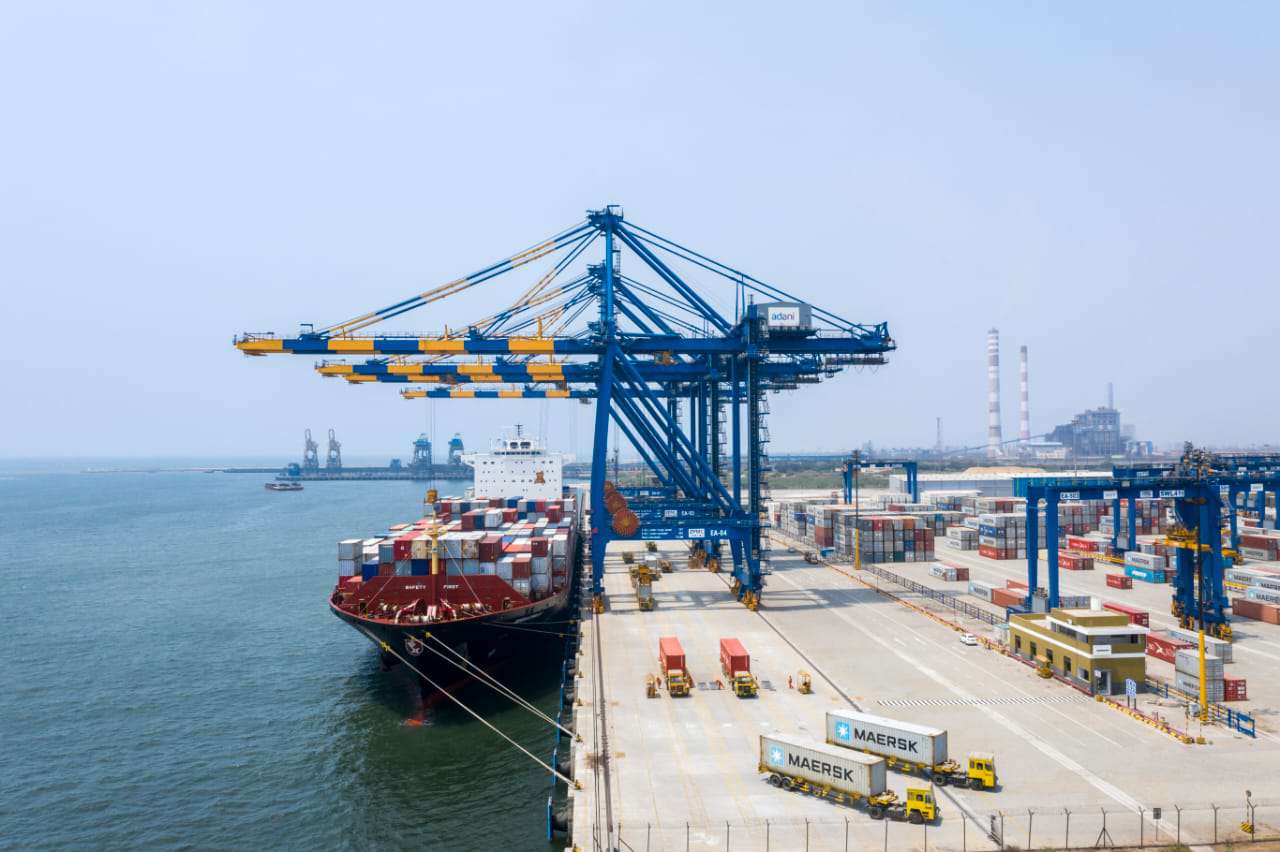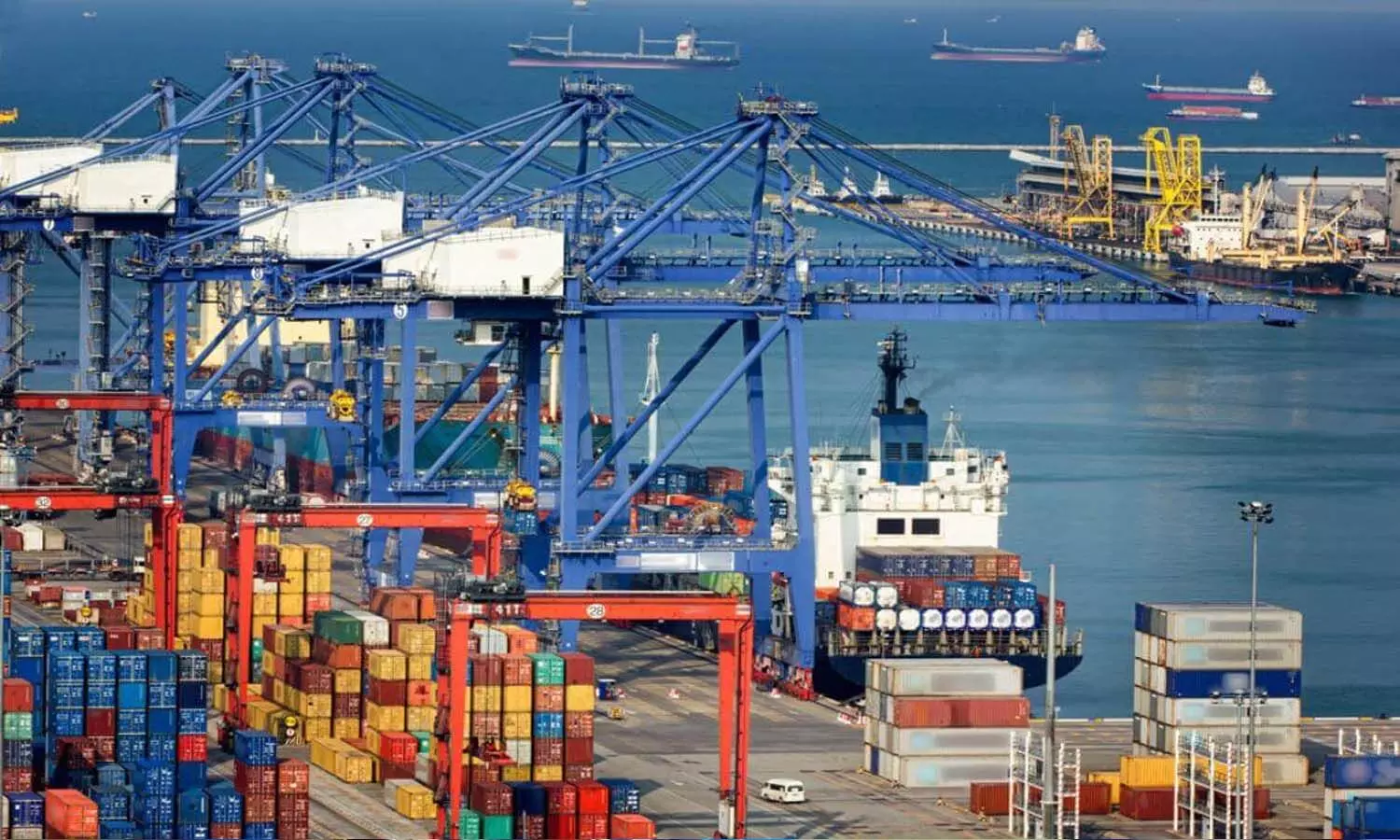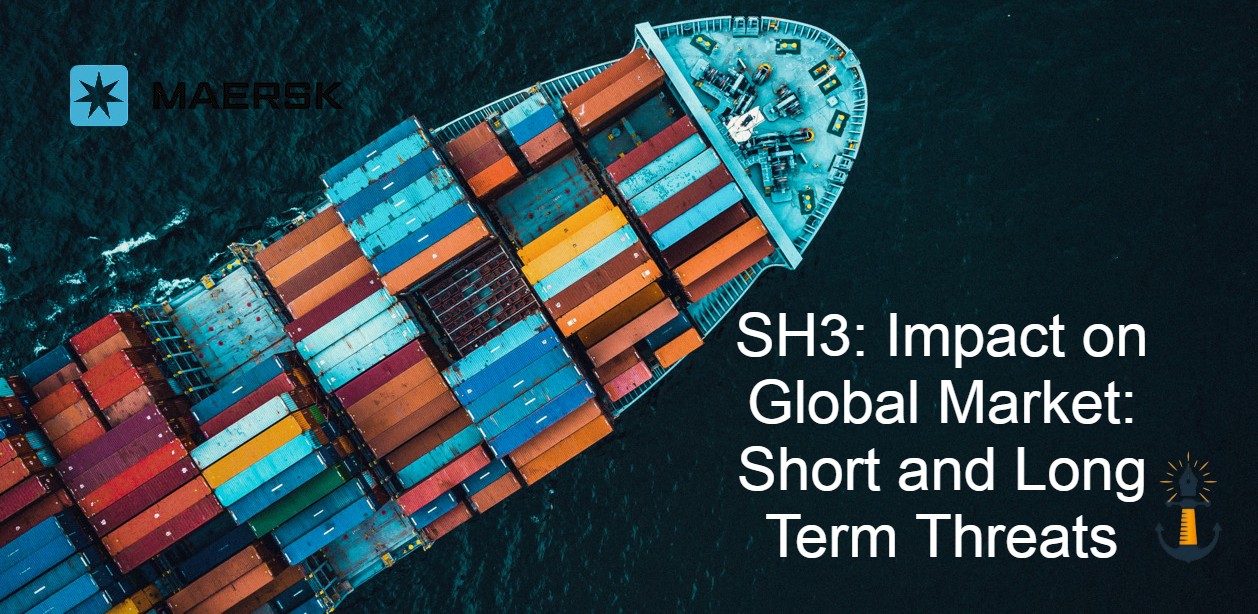The Adani Ports and Special Economic Zone Ltd (APSEZ) Joint Venture with Mediterranean Shipping Company (MSC) for expansion of Adani Ennore Container Terminal Pvt Ltd (AECTPL) through Terminal Investment Ltd ( TiL ) subsidiary Mundi Ltd.
Ahmedabad : The Adani Ports and Special Economic Zone Ltd (APSEZ) is said to be India’s largest port operator. It has further strengthened its ties with the world’s leading container shipping line, Mediterranean Shipping Company (MSC). This is the second time between APSEZ and MSC within a year. The present new joint venture is for the Adani Ennore Container Terminal Pvt Ltd (AECTPL) in Tamil Nadu. This strategic partnership is said to mark a significant development, not only for both companies but also for the maritime landscape of South India.
The Terminal Investment Ltd ( TiL ) through its wholly-owned subsidiary Mundi Ltd, will acquire a 49% shareholding of AECTPL from APSEZ for a consideration of Rs 247 crore. The total enterprise value of AECTPL is estimated at Rs 1,211 crore. However, the completion of this transaction is subject to regulatory approvals, post which APSEZ will retain a 51% stake in AECTPL.
There are many reasons why the TiL is investing in Adani Ennore Container Terminal (AECT). The major reason is AECT is a state-of-the art box terminal 30 km north of Chennai Port. Located strategically AECT offers 24×7 congestion-free approach roads for seamless cargo movement and on-dock rail siding services to Bengaluru presenting deep hinterland reach. It’s also well connected to all Container Freight Stations (CFSs) in the primary hinterland of Chennai and 4 National Highways.
Moreover the Adani Ennore Container Terminal Pvt Ltd has a quay length of 400 meters and an annual handling capacity of 0.8 Mn TEUs. In the financial year 2022-23, the terminal handled 0.55 Mn TEUs, and in the initial eight months of the current fiscal year, it managed 0.45 Mn TEUs. The concession period for the terminal extends until 2044, and its annual capacity can be extended to 1.4 Mn TEUs.
And so this State-of-the-art infrastructure of AECT’s modern facilities and technology are likely the reason to attract businesses and guarantee efficient operations.
This strategic alliance is said to mark the second collaboration between APSEZ and TiL. The first successful joint venture was for Adani International Container Terminal Pvt Ltd (AICTPL) Container Terminal Three at Mundra Port in 2013.
It is no hidden fact that the Mundra Port, operated by APSEZ, stands as the largest private commercial port in India. The current move aims to replicate the success achieved in Mundra at the Ennore Container Terminal. It is said to cater to the burgeoning trade needs of the South Indian market. The Ennore terminal partnership further cements the trust and mutual benefit that have characterized the relationship between the two maritime giants.
Here are the few Key Highlights of the Deal:
- Terminal Investment Ltd (TiL), MSC’s container terminal operating arm, will acquire a 49% stake in AECTPL from APSEZ for an equity consideration of Rs 247 crore.
- The total enterprise value of AECTPL is pegged at Rs 1,211 crore.
- AECTPL boasts a well-equipped infrastructure with a 400-meter quay and a current annual capacity of 0.8 million TEUs (twenty-foot equivalent units). This capacity can be further expanded to 1.4 million TEUs annually.
- The terminal’s concession period extends until 2044, offering a long-term perspective for both partners.
- This represents APSEZ’s second strategic collaboration with TiL, emphasizing a long-standing partnership built on mutual trust and transparency.
No ventures happens without any perspective of Mutual Benefits and Growth Potential. Similarly this JV promises significant benefits for both APSEZ and MSC:
APSEZ: Gains access to MSC’s extensive global network and expertise, solidifying their position in the rapidly growing South Indian market.
MSC: Secures a strategic foothold in a key region, strengthening their presence in India and facilitating efficient trade routes.
There are also few more reasons one must know why MSC is venturing with APSEZ. India has it’s own methodology of doing business wherein from post liberalisation that is post 1991 the Foreign Direct Investment and Indirect Foreign Investment has received enormous approvals in few cases upto 100 percentage. Later new opportunities under Public Private Partnership have also paved a big way which also provides scope of 100 percentage of Private investment. Which clearly states that the economy of India and the Investors are and will grow mutually.
On the other hand when we talk about APSEZ. India being a democratic country APEZ had to face many allegations and hurdles through Political and Industrial rivalry. However, overcoming all of it the Adani Ports and Special Economic Zone Ltd have evolved from being just a port company to an Integrated Transport Utility.
Today with seven strategically located ports and terminals on the west coast and seven on the east coast of India, APSEZ represents 26% of the country’s total port volumes. The company is also developing a transshipment port at Colombo, Sri Lanka, and operates the Haifa Port in Israel. APSEZ’s vision is to become the largest ports and logistics platform globally by the next decade.
Not just limiting to making money it has also made a commitment to turning carbon neutral by 2025, APSEZ has signed up for the Science-Based Targets Initiative (SBTi) to control global warming.
“With this second joint venture, we are now further deepening this strategic partnership in one of the fastest growing container terminal markets in the south. We aim to replicate the AICTPL terminal’s success at the Ennore Container Terminal and service the trade needs of the South Indian market,” said Karan Adani, CEO and Whole Time Director of APSEZ.
Ammar Kanaan, CEO of Terminal Investment Ltd. stated “This association will enable us to further improve TiL’s presence in one of the world’s fastest growing economies and strengthen our offering to customers in the Indian subcontinent.”




